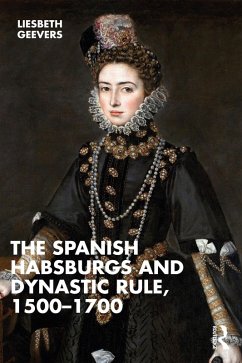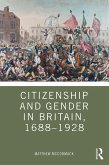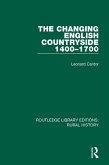Providing a novel research methodology for students and scholars with an interest in dynasties, at all levels, this book explores the Spanish Habsburg dynasty that ruled the Spanish monarchy between c. 1515 and 1700.
Instead of focusing on the reigns of successive kings, the book focuses on the Habsburgs as a family group that was constructed in various ways: as a community of heirs, a genealogical narrative, a community of the dead and a ruling family group. These constructions reflect the fact that dynasties do not only exist in the present, as kings, queens or governors, but also in the past, in genealogies, and in the future, as a group of hypothetical heirs.
This book analyses how dynasties were 'made' by the people belonging to them. It uses a social institutionalist framework to analyse how family dynamics gave rise to practices and roles. The kings of Spain only had limited power to control the construction of their dynasty, since births and deaths, processes of dynastic centralisation, pressure from subjects, relatives' individual agency, rivalry among relatives and the institutionalisation of roles limited their power.
Including several genealogical tables to support students new to the Spanish Habsburgs, this book is essential reading for all students of early modern Europe and the history of monarchy.
Instead of focusing on the reigns of successive kings, the book focuses on the Habsburgs as a family group that was constructed in various ways: as a community of heirs, a genealogical narrative, a community of the dead and a ruling family group. These constructions reflect the fact that dynasties do not only exist in the present, as kings, queens or governors, but also in the past, in genealogies, and in the future, as a group of hypothetical heirs.
This book analyses how dynasties were 'made' by the people belonging to them. It uses a social institutionalist framework to analyse how family dynamics gave rise to practices and roles. The kings of Spain only had limited power to control the construction of their dynasty, since births and deaths, processes of dynastic centralisation, pressure from subjects, relatives' individual agency, rivalry among relatives and the institutionalisation of roles limited their power.
Including several genealogical tables to support students new to the Spanish Habsburgs, this book is essential reading for all students of early modern Europe and the history of monarchy.
Dieser Download kann aus rechtlichen Gründen nur mit Rechnungsadresse in A, B, BG, CY, CZ, D, DK, EW, E, FIN, F, GR, HR, H, IRL, I, LT, L, LR, M, NL, PL, P, R, S, SLO, SK ausgeliefert werden.









